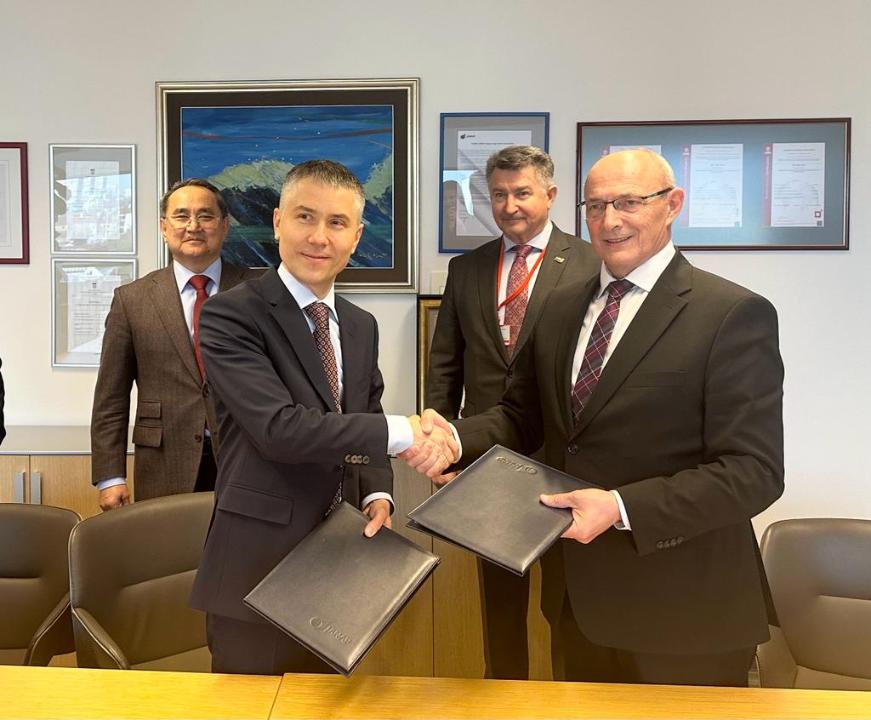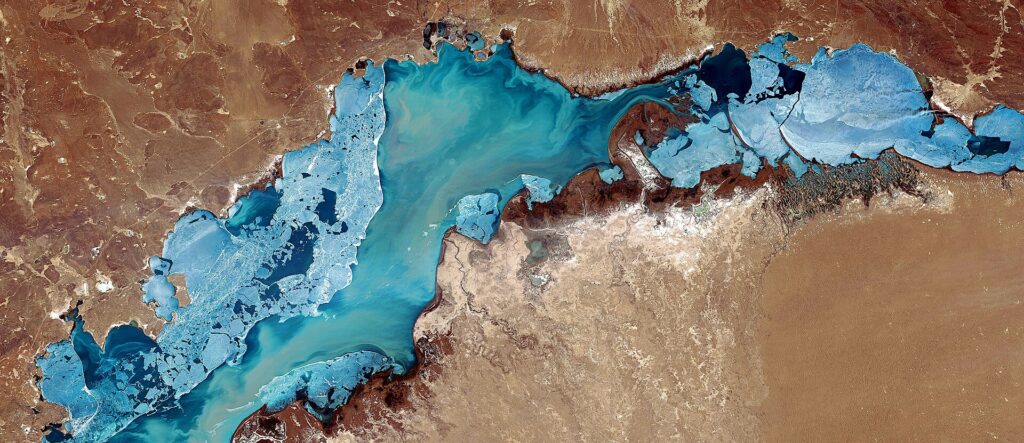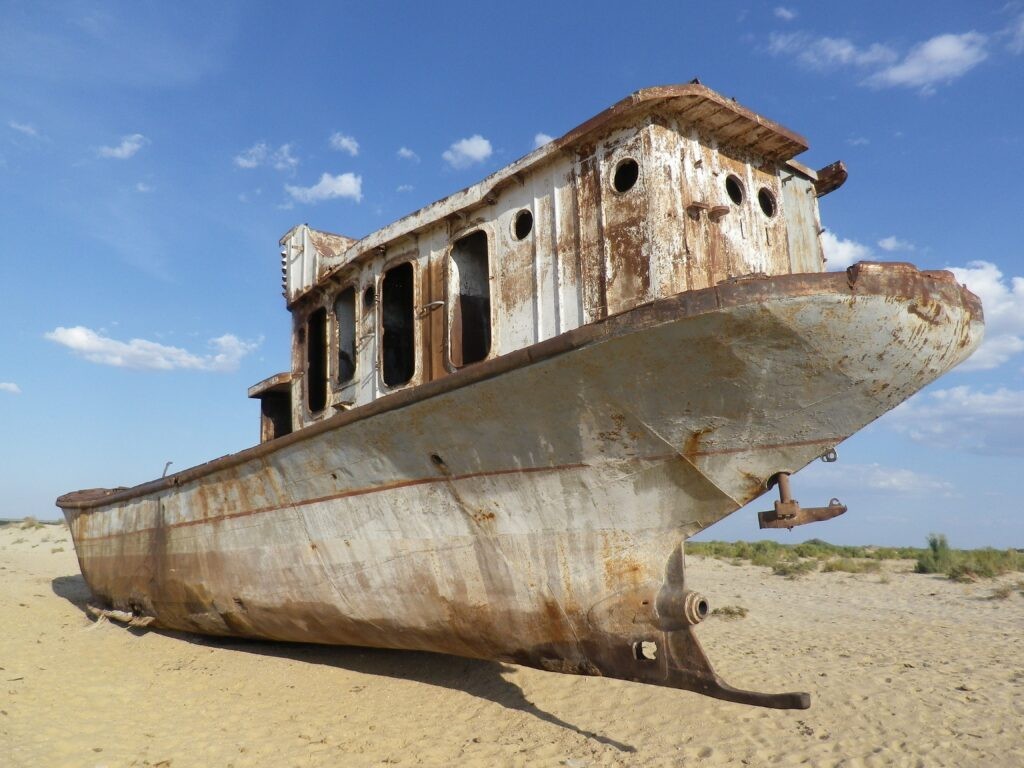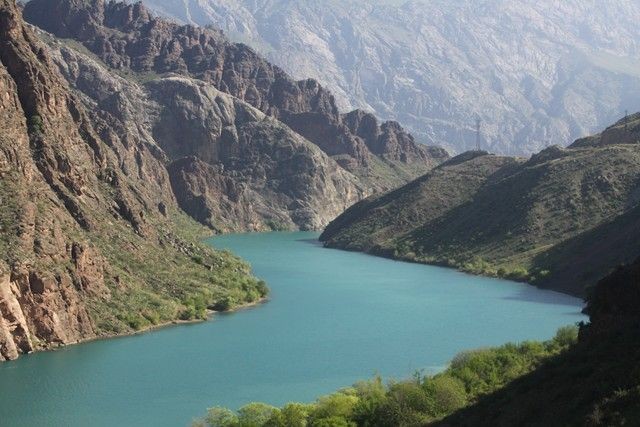Located 175 miles north-west of the country’s largest city, Almaty, Kazakhstan’s Lake Balkhash is the fifteenth largest lake in the world. The remains of an ancient sea which once covered vast tracts of land, on its shores in the city of Balkhash, a mixture of around 68,000 mostly ethnic Kazakhs and Russians eke out a living, predominantly through fishing and mining. But like its’ sister body of water, the Aral Sea, Lake Balkhash is under threat with its inflow sources diminishing. Fed by glaciers in Xinjiang, China, the Ili River has traditionally accounted for the vast majority of Lake Balkhash’s inflow, but according to research, as of 2021 China was blocking 40% of the river’s inflow, leading to a rise in anti-Chinese sentiments in Kazakhstan. In 1910, Lake Balkhash had an estimated surface area of 23,464 km². As recently as the 1960s, fishermen were netting a catch of over 30,000 tons annually, but by the 1990s, this had fallen to 6,600 tons of significantly less sought-after types of fish. Between 1970 and 1987 alone, the water level fell by 2.2 meters, with projects aimed at halting this decline abandoned as the Soviet Union fell into stagnation before dissolving. Currently, the lake covers a surface area of between 16,400 and 17,000 km². Falling water levels have also led to the appearance of new islands and impacted biodiversity, with 12 types of bird and 22 vertebrates indigenous to the region listed in the Red Book of Kazakhstan as endangered, whilst the Caspian tiger is, in all likelihood, extinct. Meanwhile, contamination from mining, both local and upstream in China, have led to the lake being classified as “very dirty.”[/vc_column_text][vc_single_image image="12326" img_size="full" el_class="scond-image" parallax_scroll="no" woodmart_inline="no"][vc_column_text woodmart_inline="no" text_larger="no"]With desertification now affecting one-third of the Balkhash-Alakol Basin, which includes Almaty, the resultant dust storms are leading to an increase in the lake’s salinity, with silt from these storms further affecting inflow. Parallels to the Aral Sea – arguably the worst man-made environmental disaster in modern history – are all too apparent. Spanning across Kazakhstan and Uzbekistan, the Aral Sea was once the fourth largest inland body of water in the world, covering 68,000 km². The destruction of the Aral Sea first dates back as far as the U.S. Civil War, when, finding his supply of American cotton under threat, the Russian tsar decided to use the sea’s tributaries to irrigate Central Asia and create his own cotton bowl. With 1.8 million liters of water needed for every bale of cotton, the water soon began to run out. By 2007, the Aral had shrunk to one-tenth its original size. Up until the late-1990s, the land surrounding the Aral Sea was still cotton fields; today, it’s largely an expanse of salinized grey emptiness. The desiccation of the landscape has led to vast toxic dust-storms that ravage around 1.5 million square kilometers. Spreading nitrates and carcinogens, these storms - visible from space - used to occur once every five years, but now strike ten times a year.[/vc_column_text][vc_single_image image="13441" img_size="full"...






